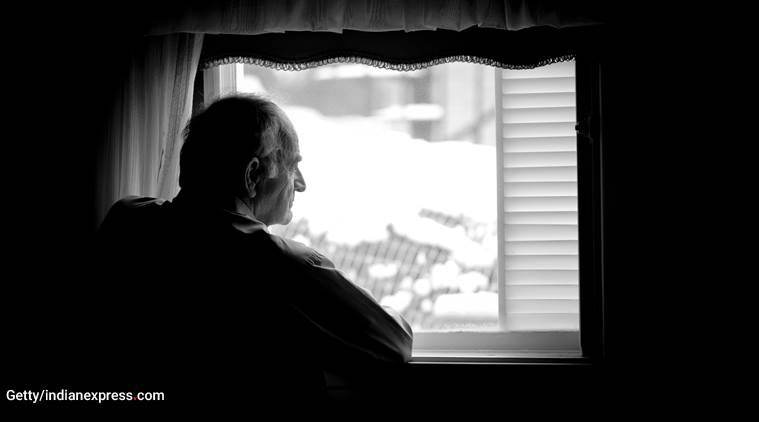 Previous researches have revealed that social ties are needed to protect people from emotional distress, their cognitive decline, and physical disability. (Source: Getty/Thinkstock)
Previous researches have revealed that social ties are needed to protect people from emotional distress, their cognitive decline, and physical disability. (Source: Getty/Thinkstock)
A recent research has highlighted that people may experience increased loneliness in their old age, especially in their 70s, in the ongoing pandemic. The report — which essentially looks into the issue of social isolation in older people — offers an insight into the experiences of those who have been asked to ‘cocoon’, so as to stop the spread of the coronavirus. It has been published jointly by researchers at the Irish Longitudinal Study on Ageing (TILDA) and ALONE.
While new data documents increased feelings of loneliness, anxiety and isolation in old people in the pandemic, it has been compared with experiences of loneliness and isolation in old people before the outbreak of COVID-19. Previous researches have revealed that social ties are needed to protect people from emotional distress, their cognitive decline, and physical disability. It has also been said that loneliness and social isolation can cause great harm to the physical and psychological well-being of a person. In fact social isolation has often been linked to a poorer quality of life.
The TILDA study took into account the experiences and health habits of those living in Ireland. It also examined many key areas that affect old people, like physical and mental health, as well as social and economic factors. In short, it found that before the pandemic over 70 per cent of participants reported that they never or rarely felt lonely; less than 25 per cent felt lonely some of the time, while just 5 per cent reported feeling lonely often. Of those living alone, 31 per cent rarely felt lonely, 32 per cent felt lonely sometimes, and 37 per cent felt lonely often. Of those living with others, 49 per cent are least lonely, 30 per cent sometimes and 21 per cent are often lonely.
TILDA’s research points out that most older people are not often lonely, and appear resilient, while data from ALONE’s helpline suggests the pandemic has taken a toll on older adults. After the outbreak, ALONE’s support and telephone befriending service volunteers continued calling and sending texts to older people, to share health and well-being tips. And some 500 smartphones were distributed those who have limited means of social interaction, too.
ALONE’s research shows that the national support line received 26,174 calls in the period between March 9 and July 5, 2020. Of the total calls, 55 per cent were from those over 70s and advised to ‘cocoon’. And 75 per cent of the callers were living alone.